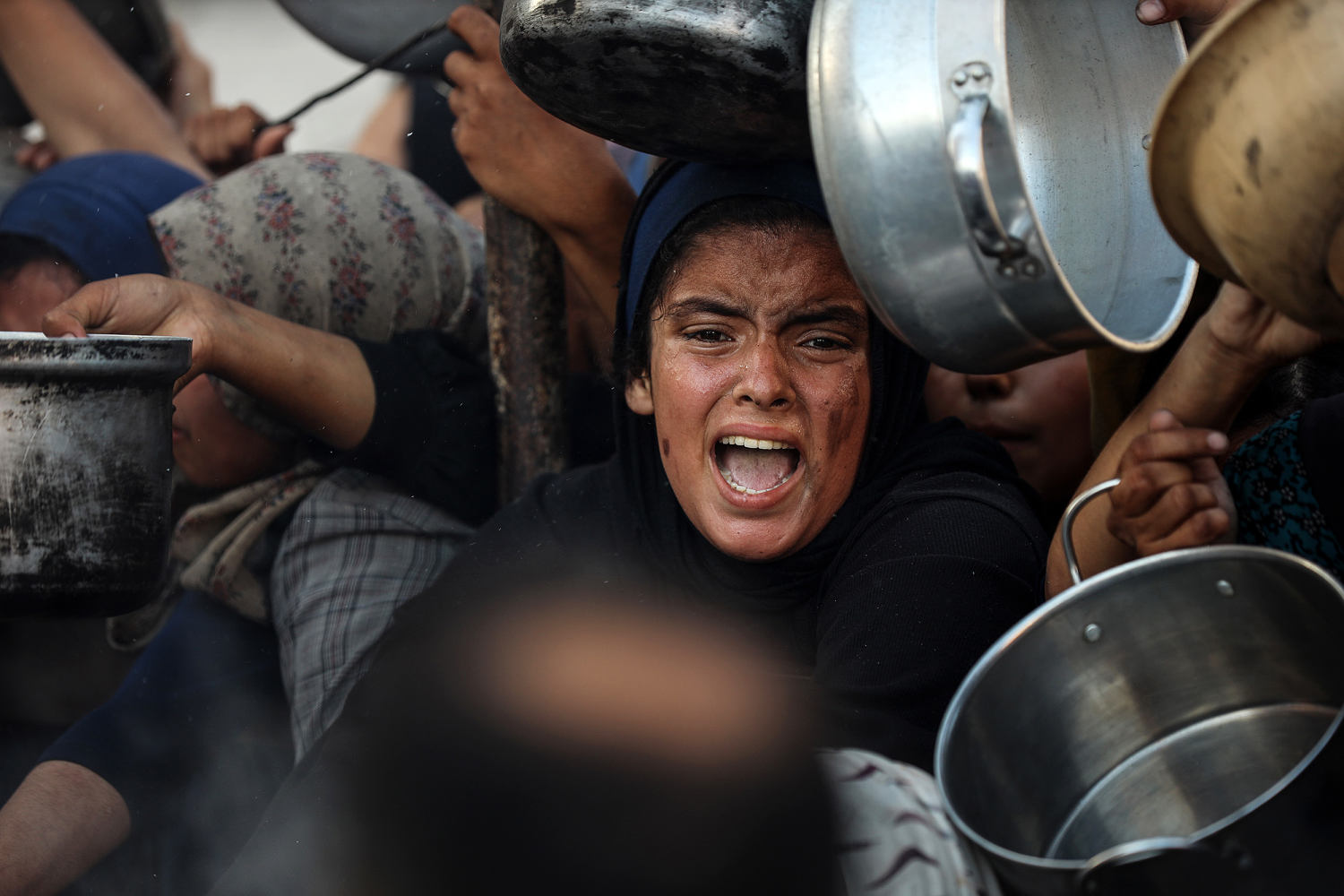
The humanitarian crisis in Gaza is spiraling into catastrophe. As war rages on, a devastating hunger emergency is unfolding. Children are dying from malnutrition, aid is critically limited, and desperate families are risking their lives just to access basic food. Here's a breakdown of the worsening situation, told through the voices of doctors, aid workers, and civilians on the ground.
The hunger crisis in Gaza has reached terrifying new levels, health workers report, with more children dying from malnutrition each day and thousands more at risk across the besieged enclave.
“Even we, the young ones, can barely walk due to lack of food,” said Walid Abu Mohsen, a father of seven from Khan Younis. He spoke to NBC News on Sunday after managing to grab a sack of flour from one of the few aid trucks to arrive in the area. In other parts of Gaza, people have died waiting for food deliveries that never came—or were violently intercepted.
“Famine is now striking Gaza alarmingly and terrifyingly,” said Dr. Mohammed Salmiya, director of Al-Shifa Hospital in Gaza City. He warned that hospitals are being overwhelmed by waves of patients suffering from malnutrition. On Saturday alone, two children died at Al-Shifa due to hunger-related complications.
The Palestinian Health Ministry reported 19 deaths from malnutrition in just the last 24 hours, although NBC News was not immediately able to verify the numbers independently. According to Salmiya, the total number of malnutrition-related deaths since the war began has now surpassed 70—including over 50 children.
The crisis intensified in early March when Israel imposed a blockade on aid entering Gaza. While that blockade was lifted in May, aid has remained severely limited. The distribution is largely handled by the Gaza Humanitarian Foundation (GHF), a U.S.- and Israel-backed organization. Critics, including the UN, have called the aid system deeply flawed and even dangerous: many Palestinians have been killed by Israeli forces while trying to reach food.
Dr. Travis Melin, an anesthesiologist from Oregon volunteering in Gaza, confirmed the scope of the crisis, saying malnourishment in hospitals is close to “100 percent.”
UN Secretary-General Antonio Guterres has raised concerns over the complete breakdown of humanitarian operations in Gaza. His spokesperson, Stéphane Dujarric, stated, “The last lifelines keeping people alive are collapsing.”
On Sunday, the situation reached a horrifying new peak. More than 90 people were reportedly killed while attempting to access food aid, according to Dr. Marwan Al-Hams, director of field hospitals. Most were gunned down trying to reach supplies at an Israeli crossing point, according to Zaher al-Waheidi of Gaza’s Health Ministry.
This tragic incident was not connected to the GHF’s aid distribution system but adds to a growing number of fatalities linked to food desperation. Earlier this month, the UN human rights office reported that nearly 900 people have died while trying to access food in Gaza.
The World Food Programme (WFP) revealed that one of its 25-truck convoys carrying essential food supplies from the Zikim border came under fire from Israeli tanks and snipers while approaching large crowds of civilians. The attack resulted in “the loss of countless lives,” the WFP said.
The Israel Defense Forces (IDF) stated the incident is under review but claimed that reported casualty figures do not match IDF data.
In a news release, GHF claimed it has distributed over 82 million meals since launching operations in late May. However, with Gaza’s population at around 2.1 million, this averages to less than one meal per person per day over a 50-day period.
Other humanitarian efforts are ongoing, but they are not nearly enough. Food prices in local markets have skyrocketed, and access to basics like bread and vegetables is nearly impossible for many.
Nearly one in three people in Gaza is “not eating for days at a time,” the WFP warned on Friday.
“This is worse than I’ve ever seen before,” said Carl Skau, WFP Deputy Executive Director. He recounted how mothers have started urging their children not to play so they can conserve energy due to lack of food.
Even GHF acknowledged that the aid is insufficient. “There isn’t enough aid coming into Gaza,” a spokesperson told NBC News, emphasizing the urgent need for more support and access.
The Israeli Prime Minister’s office did not respond to NBC’s request for comment. The IDF has claimed that hundreds of aid trucks are currently inside Gaza awaiting distribution. Spokesman Lt. Col. Nadav Shoshani noted over 700 trucks are stalled inside the enclave.
Before the war, Gaza received around 500 aid trucks daily, according to the British Red Cross. But amid the chaos and danger of ongoing military operations, distributing that aid has become a logistical nightmare—and a deadly gamble for those in need.







0 Comments